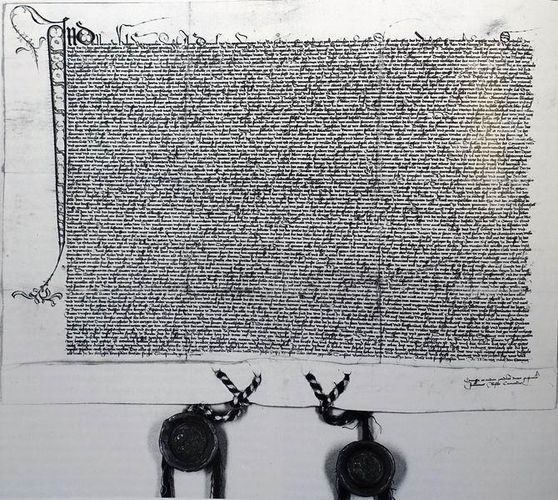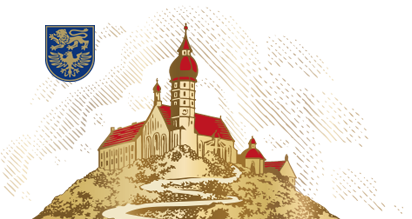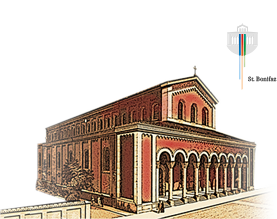- Product range
- History
- Raw materials & brewing process
- Distribution & sales
- Guided Tours
- EMAS environmental certification
- Beer glossary
- Andechs Beer in US
Andechs and beer go together
“Here in Bavaria, beer is not merely an indulgence, it is food. It is made from grain, yeast and water, just like bread.” The Andechs Benedictine Willibald Mathäser (1901-1985) defined the importance of beer with those succinct words.
For Andechs, this connection is as old as the Benedictine Monastery on the Holy Mountain – more than 560 years. Did beer serve as a staple for the monks? To a certain degree surely yes, although the nutritional value of beer at the time likely had little in common with today’s varieties. However, it mainly served as refreshment and nourishment for the pilgrims that come to Andechs, Bavaria’s oldest pilgrimage site, to this day.
Serving beer implies brewing

In the deed of foundation from 1458, Duke Albrecht III, aside from many other benefits, granted the monastery the “Tafern zu Andechs” and the “Zapffenrecht und die Ungelt Erling”: The tavern in Andechs – today’s Klostergasthof – and the right to draw beer in Erling and to retain the alcoholic beverage tax, which normally had to be remitted to the sovereign.
Drawing beer naturally implies brewing it. A document by Albrecht’s father Ernst from 1438 associated with the former collegiate monastery on the Holy Mountain also points in this direction, establishing the tax exemption for the Andechs tavern.
In view of the steadily increasing flow of pilgrims, this was a far-sighted decision that bears fruit to this day.
Brewing and selling beer – an undisputed right
The brewery became the monastery ’s leading enterprise over the centuries. Of the 28,864 gulden of proceeds recorded for 1802, the brewery generated 12,092 gulden. Other monastery operations included the pharmacy, locksmith shop, blacksmith shop, engineering offices, fishery, tavern operation in Stegen, bakery and nearly 390 ha of agriculture. We know of them thanks to the inventory taken by government authorities when the monastery was dissolved in 1803.
Records preserved in the Bavarian Main State Archive in Munich for the period from 1455 to 1803 only contain three references to the topic of beer. These are about various deliveries – nothing more. A converse argument is that the production and sale of beer in Andechs was an undisputed right that was never questioned over the course of centuries, which meant it took place without difficulty and no written records. After all, things are mostly recorded only when something is unclear.




